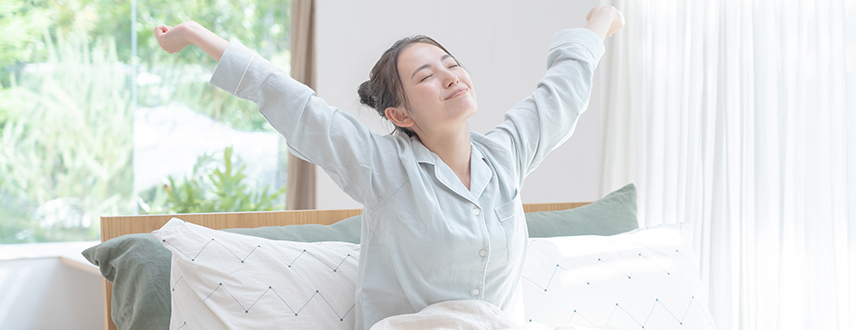
Long summer days often mean later nights, early mornings for adventures, and plenty of schedule changes. While the carefree vibe is wonderful, it can leave your sleep routine out of sync. As we move toward the structure of fall—whether that’s back-to-school, busier workdays, or just shorter daylight hours—resetting your sleep habits can help you feel more energized, focused, and ready for the season ahead.
1. Adjust Gradually
If your bedtime has been drifting later, shift it back in 15-minute increments every few nights instead of making a sudden change. This gentler approach gives your body’s internal clock (your circadian rhythm) time to adapt.
2. Set a Consistent Wake-Up Time
Getting up at the same time every day—even on weekends—is one of the fastest ways to reset your sleep schedule. Your body thrives on consistency, and regular wake times help signal when to wind down at night.
3. Create a Wind-Down Routine
An hour before bed, dim the lights and switch to calming activities. Reading, gentle stretching, or a warm shower can help signal to your brain that it’s time to rest. Avoid screens if you can—the blue light can interfere with melatonin production.
4. Make Your Sleep Space Inviting
A cool, dark, and quiet environment sets the stage for better rest. Blackout curtains, a comfortable mattress, and a fan or white noise machine can make a big difference in how quickly you fall asleep and stay asleep.
5. Watch Your Afternoon Habits
Late-day caffeine, heavy dinners, or high-intensity workouts right before bed can all make it harder to fall asleep. Aim to finish caffeine by early afternoon and give yourself at least 2–3 hours between dinner and bedtime.
6. Soak Up Morning Sunlight
Natural light in the morning helps reset your body’s internal clock and boosts alertness. Just 10–20 minutes outside shortly after waking can help you fall asleep more easily that night.
7. Be Patient with Yourself
It can take one to two weeks to fully adjust, especially after a summer of irregular hours. Stick with your routine, and your body will catch on.
A healthy sleep routine doesn’t just help you feel more rested—it boosts mood, strengthens immunity, sharpens focus, and supports overall well-being. With a little structure and a few small changes, you can trade in summer’s late nights for autumn’s steady, restorative rest.
